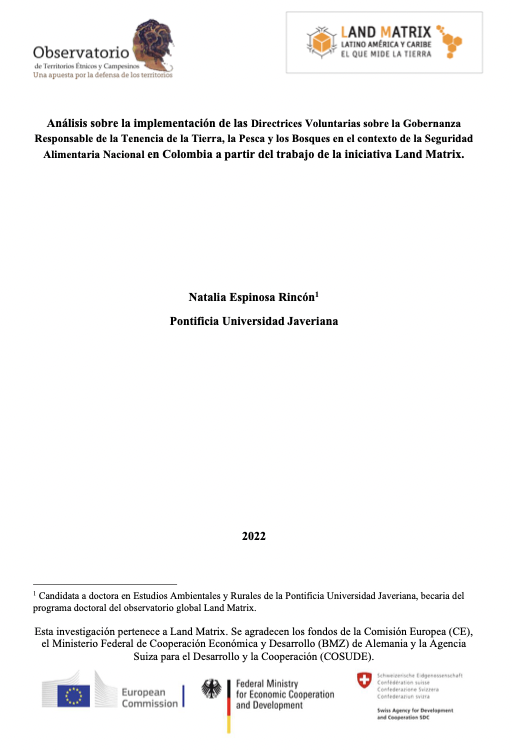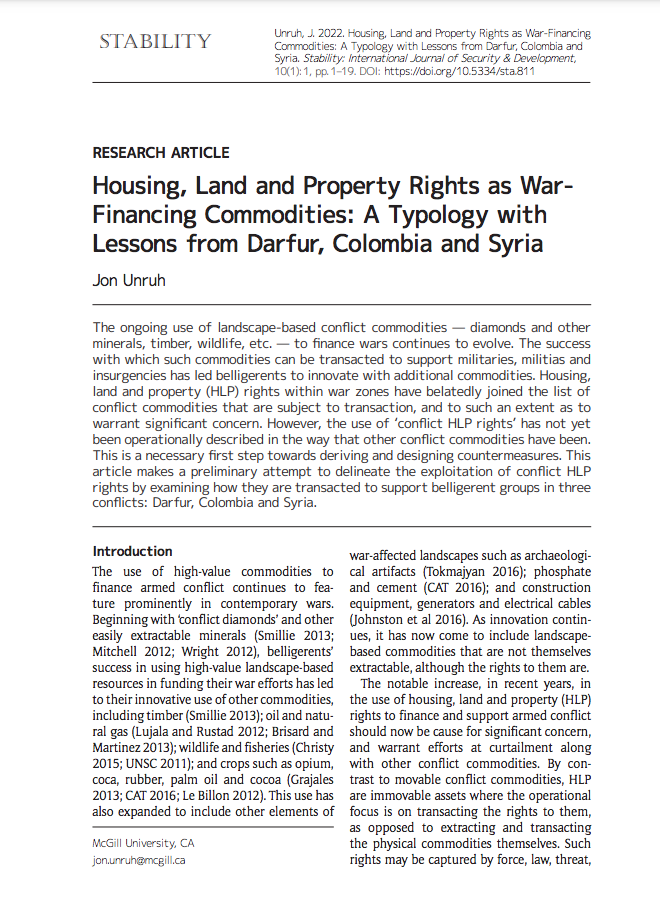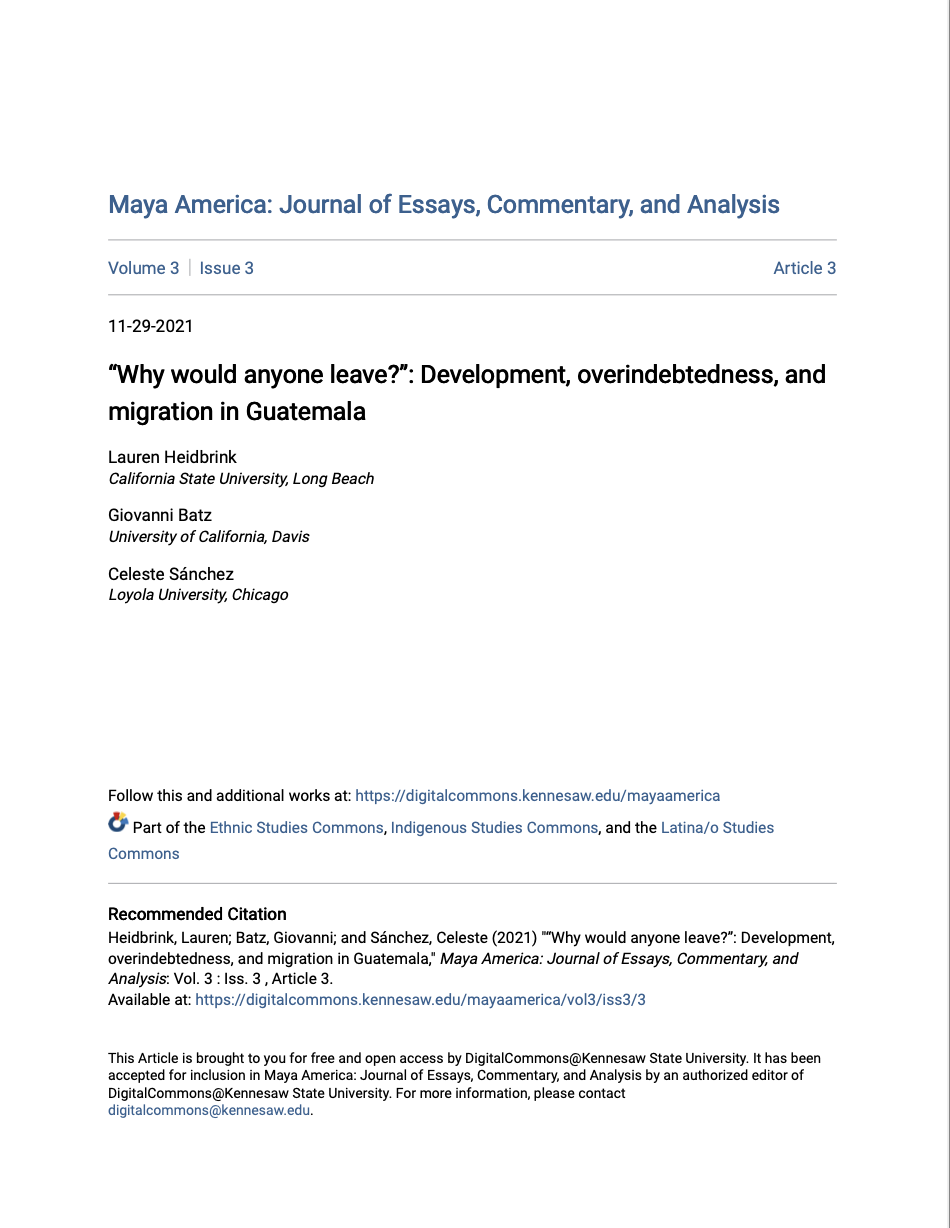Análisis sobre la implementación de las Directrices Voluntarias sobre la Gobernanza Responsable de la Tenencia de la Tierra, la Pesca y los Bosques en el contexto de la Seguridad Alimentaria Nacional en Colombia a partir del trabajo de la iniciativa LM
En este documento se presenta un análisis sobre los aportes que hace el monitoreo de Grandes Transacciones de Tierra -GTT- de la iniciativa independiente global Land Matrix para conocer el estado de implementación de las Directrices Voluntarias sobre la Gobernanza Responsable de la Tenencia de la Tierra, la Pesca y los Bosques en el contexto de la Seguridad Alimentaria Nacional - DVGT- elaboradas por la Organización de las Naciones Unidas para la Alimentación y la Agricultura -FAO- y publicadas en el año 2012.







